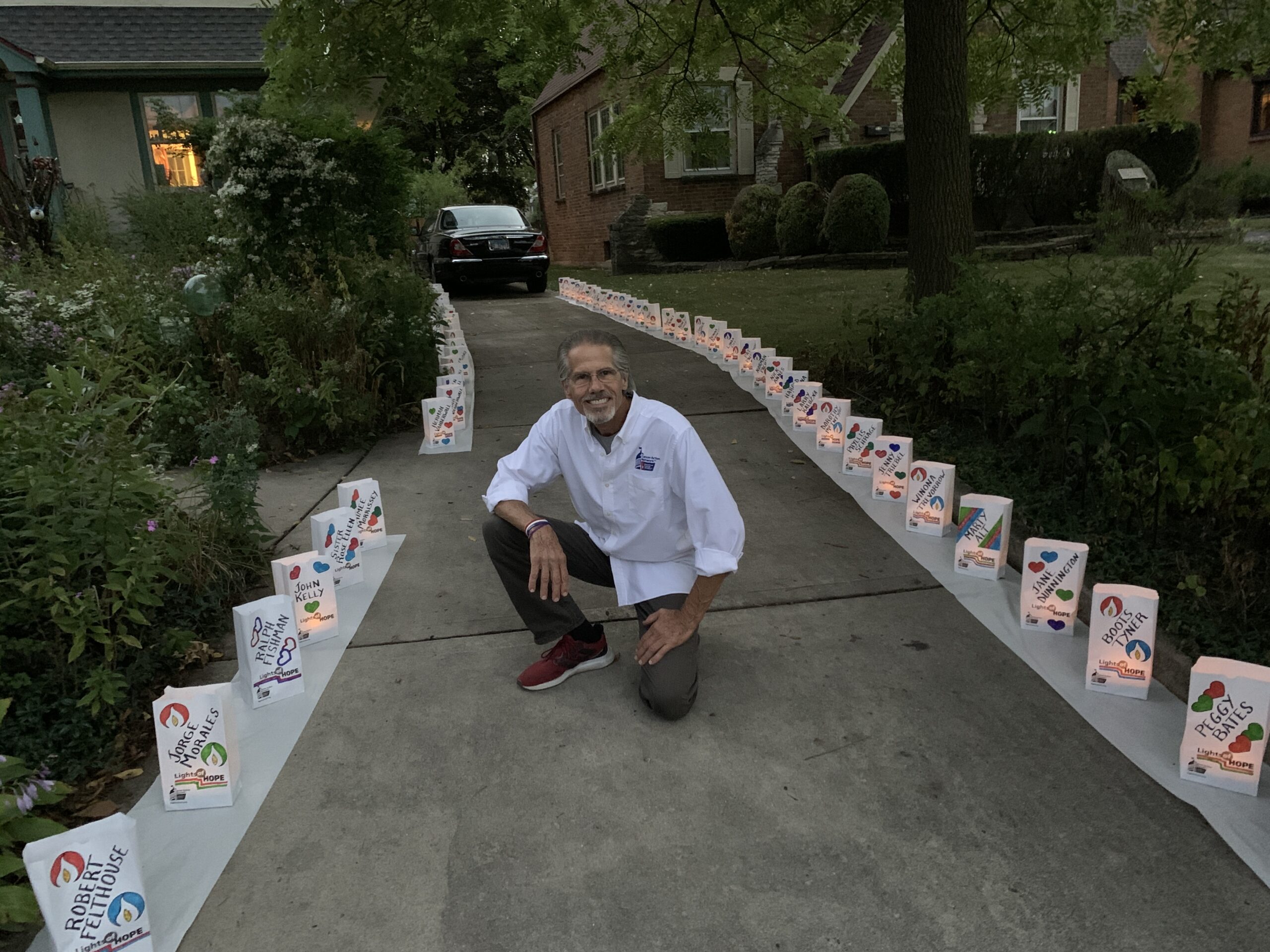
Pictured is Terry Hennen, an Elmhurst resident and cancer survivor, who usually travels to Washington, DC, at this time of year to advocate for legislation in the fight against cancer. The event typically includes a luminaria display around the Lincoln statue. Due to COVID-19, this year there was no meeting in Washington, rather participants were asked to put up their luminaria at their home, which Terry did.
By Dee Longfellow
For The Elmhurst Independent
As a volunteer for the American Cancer Society Cancer Action Network (ACS CAN), Elmhurst resident Terry Hennen has gone to Washington D.C. five times to advocate for cancer patients. In past years he joined 600+ other delegates from around the country to meet with senators and congressmen in person. COVID-19, however, made this year a little different. Instead of the usual three-day schedule of presentations, training and “meetings on the Hill,” everything was done virtually.
“I really missed the social interaction,” said Hennen, “but we accomplished our mission to directly ask our legislators to support specific legislation that helps in the fight against cancer.”
This year’s first request was for increased funding for cancer research and prevention programs with $44.7 billion (a $3 billion increase) for the National Institutes of Health, including $6.9 billion specifically for the National Cancer Institute. While COVID-19 has drawn everyone’s attention, cancer can’t be forgotten as it is the nation’s second-leading cause of death. This year 1.8 million Americans will be diagnosed with cancer, and more than 600,000 will die.
The second request made by the ACS CAN delegates was for support of the Henrietta Lacks Cancer Research Enhancement Act. Cancer research generates cutting-edge treatments that are used to improve survival and quality of life for cancer patients. The clinical trials used to test these treatments are sometimes the last hope for cancer patients who have tried everything else. Ethnic minorities, older Americans, rural Americans, and poorer Americans are among the groups that are under-represented in cancer clinical trials. This legislation was written to help improve that shortcoming.
Hennen noted that in his past trips to Washington with ACS CAN, an effective highlight was the luminaria display and ceremony that took place on the final evening of the conference. Known as Lights of Hope, it took place last year in front of the Lincoln Memorial and there were more than 40,000 decorated luminaria bags individually dedicated to loved ones who had battled cancer. This year, each delegate was asked to have their own display at home, then take pictures that would be shared in a live stream program.
Hennen displayed 100 luminaria bags and had a local bagpiper Brian Costello join him at dusk to play Amazing Grace.
“While I missed the grandeur of the Lincoln Memorial, we got a lot of attention in the neighborhood as people walked by and asked what it was all about,” he said. “That was a win. I can’t wait to get back to normal, but until then we will just have to keep finding creative ways to keep the ball rolling.”


